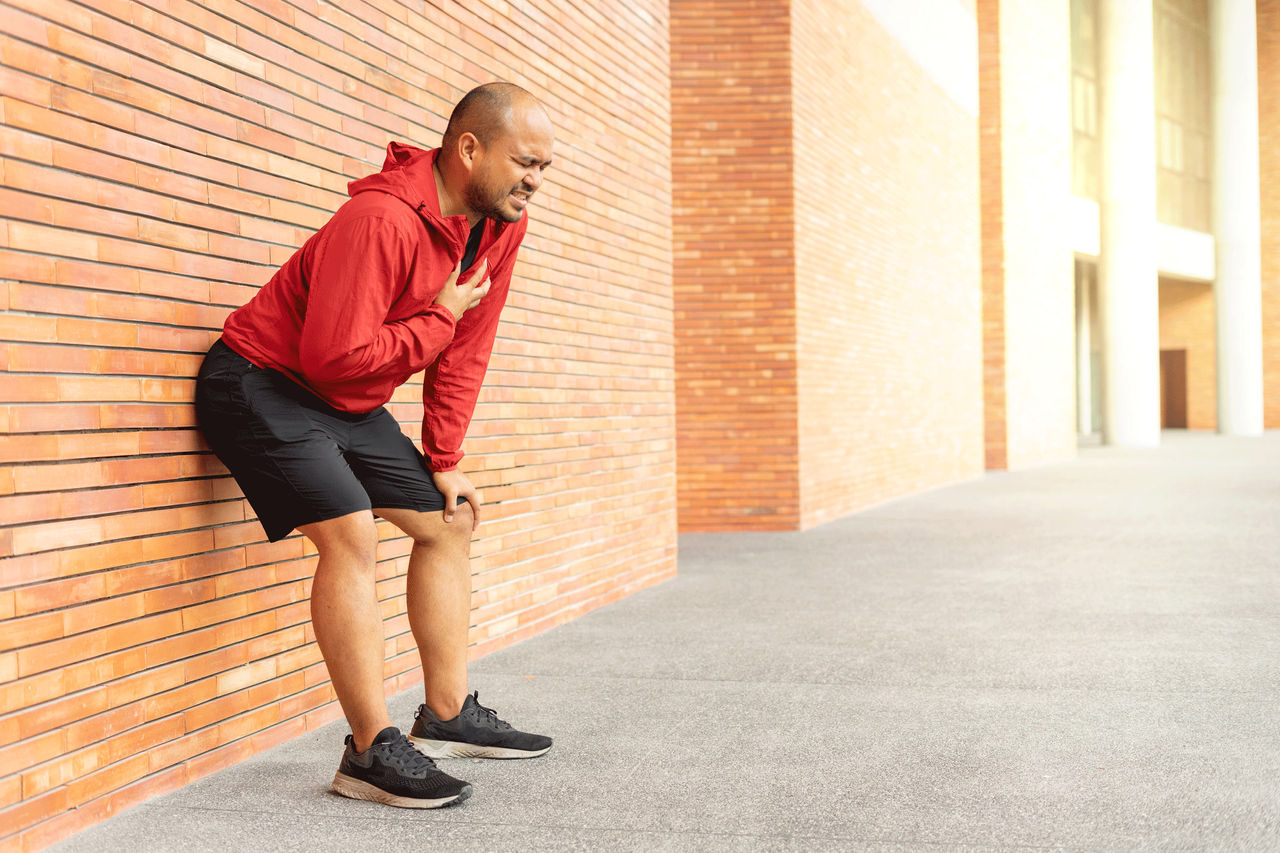What Is Cardiac Arrest?

This sudden heartbeat disruption can be deadly without quick action, cutting off the blood supply your organs need to survive. Here's what you should know.
The familiar rhythm of your heartbeat serves an important purpose. As the top and bottom chambers contract, they push blood to your lungs to pick up oxygen and send that oxygenated blood to the rest of your body. In cardiac arrest, your heartbeat suddenly stops, cutting off the blood supply organs need to survive.
Cardiac arrest and a heart attack are not the same; a heart attack occurs when blood flow to part of your heart muscle becomes blocked, although a heart attack can cause cardiac arrest.
About 1,000 people experience cardiac arrest each day in the United States. Half of them had no idea they had any heart problem.
When cardiac arrest happens outside of a hospital — in places like an airport, football field, or mall — the odds of survival are just 10 percent. Calling 911 and starting cardiopulmonary resuscitation (CPR) can help someone survive this potentially catastrophic heart event.
YOU MIGHT ALSO LIKE: You Shouldn’t Routinely Take Baby Aspirin for Your Heart
What causes cardiac arrest?
The heart has its own electrical system that coordinates its beats. A malfunction in this system can put your heart into an irregular rhythm, or arrhythmia. Faulty electrical signals make your heart’s lower chambers (ventricles) quiver, which is called ventricular fibrillation, instead of pumping.
These conditions can lead to cardiac arrest:
- Coronary artery disease
- Heart attack
- Heart valve disease
- Enlarged heart (cardiomyopathy)
- Heart defects
Substances such as opioids, cocaine, and amphetamines can also trigger cardiac arrest.
It’s possible to go into cardiac arrest during exercise if you have an underlying condition like cardiomyopathy (an enlarged heart muscle) or lonq QT syndrome (a problem with the heart’s electrical system). This is what sometimes happens to football players or other athletes, either during intense physical activity or while they’re resting afterward.
What are the symptoms of cardiac arrest?
Someone without any symptoms might suddenly pass out, stop breathing, and become unresponsive. Warning signs include:
- Dizziness
- Shortness of breath
- Chest pain
- Nausea
- Palpitations, a fast heartbeat
If you or someone else has these symptoms, call 911 or go to an emergency room right away.
What to do if someone is in cardiac arrest
Without the right treatment, a person in cardiac arrest can die within minutes. It’s critical for bystanders to take quick action. Call 911. Then start CPR.
You don’t need any special training to perform CPR. It’s also not necessary to check the person’s pulse or breathe into their mouth.
Simply push down hard on the center of the person’s chest at a rate of 100 to 120 beats per minute. Use the beat of the song “Stayin’ Alive” to guide you. Keep giving CPR until medical help arrives.
If an automated external defibrillator (AED) is available, you can use it to shock the person’s heart back into rhythm.
Diagnosing the cause
At the hospital, the medical team will do a series of tests to identify what caused the cardiac arrest. The results of these tests will determine which treatment will prevent it from happening again.
Tests may include:
- Blood tests
- Stress tests to see how well your heart is working during activity
- Electrocardiogram (EKG or ECG) — a check of your heart’s electrical system
- Electrophysiology study — a test of your heart’s electrical activity
- Cardiac catheterization — a procedure that uses a thin tube, guided through a blood vessel to your heart, to diagnose problems with your heart or its blood vessels.
Treatments
In the hospital, treatment focuses on restoring oxygen flow to prevent organ damage, especially to the very vulnerable brain. Any additional treatments will depend on what caused the cardiac arrest. For example, surgery may be necessary to bypass a blocked artery from coronary artery disease.
Life after cardiac arrest
The survival rate after cardiac arrest is so low that it can seem like a victory just to come back from this event. But being deprived of oxygen can leave long-term problems with speech, movement, and memory that will require time and therapy to recover from.
Once you’ve had one cardiac arrest, you’re at higher risk for another one. Your doctor may implant a cardioverter device to shock your heart back into rhythm if it goes into arrhythmia again.
What you can do
Identifying heart problems early can prevent cardiac arrest from happening. See your primary care doctor or a cardiologist for regular checkups.
Follow a heart-healthy lifestyle, eating a nutritionally balanced diet and getting regular exercise. Treat conditions like coronary heart disease and high blood pressure. Talk to your doctor right away if you have symptoms like shortness of breath, chest pain, palpitations, or dizziness.
Updated:
June 14, 2023
Reviewed By:
Janet O'Dell, RN